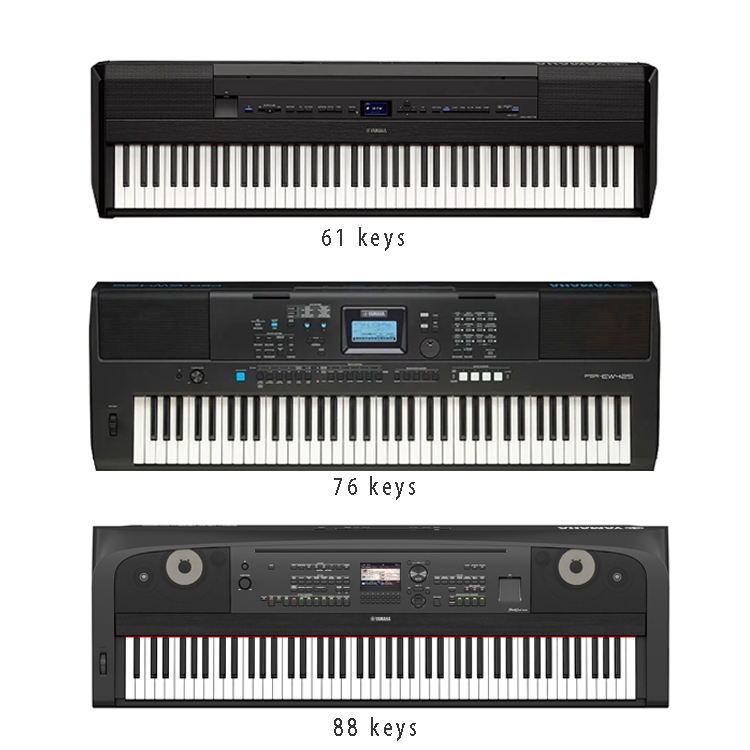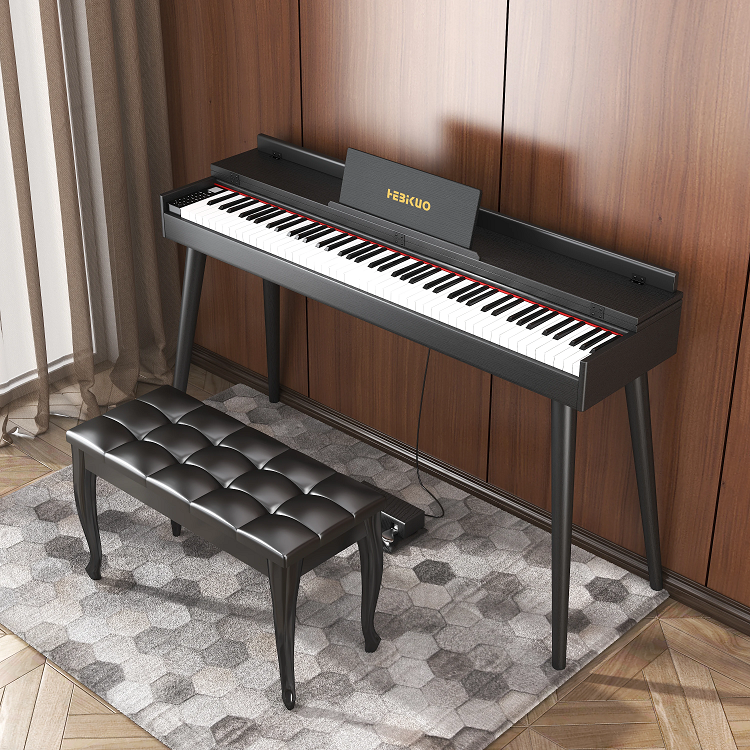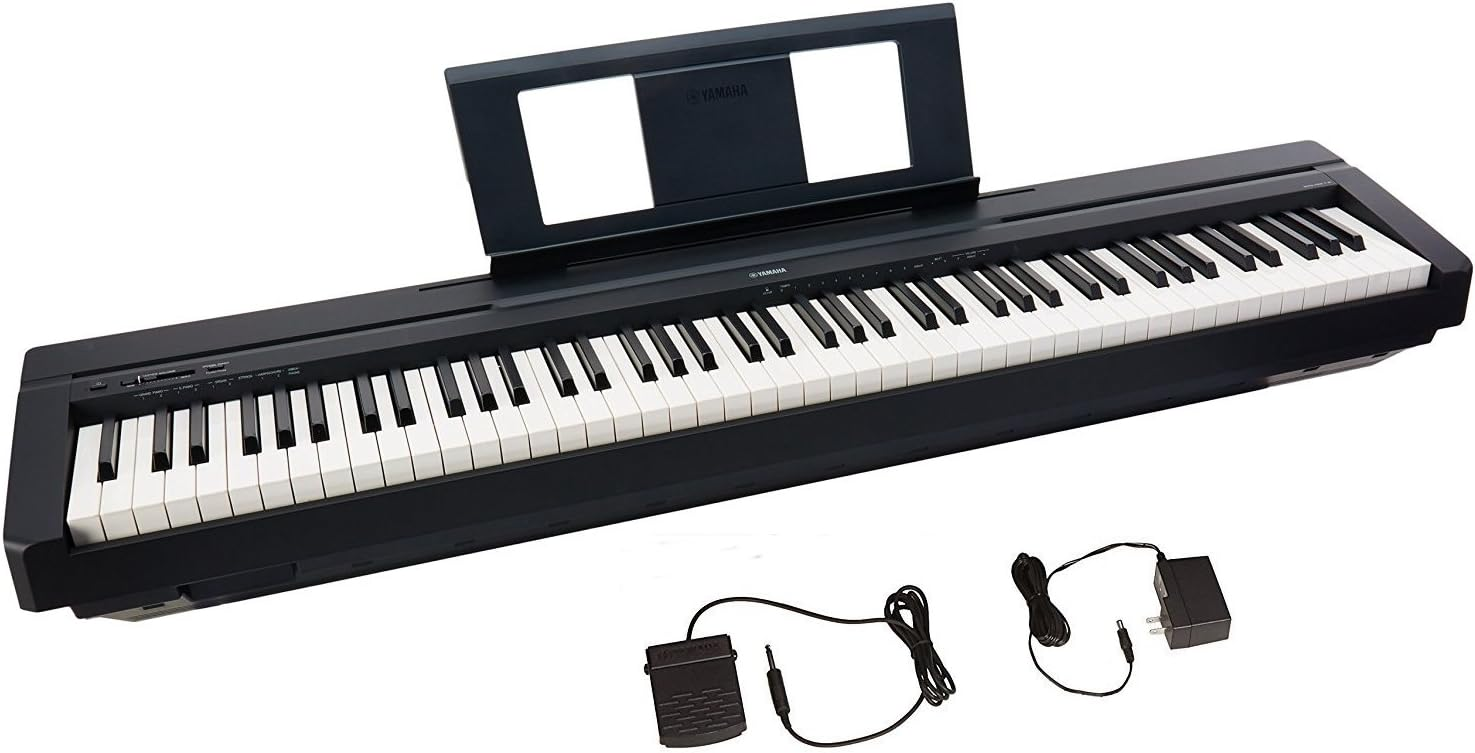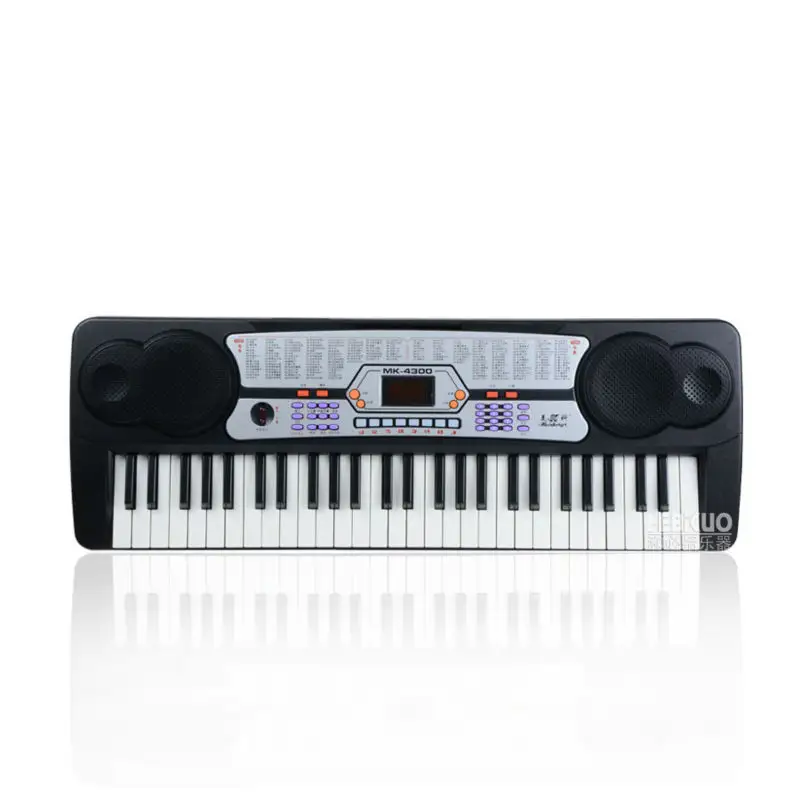Starting your musical journey can be an exciting yet overwhelming experience, especially when it comes to choosing the right instrument. For beginners looking to learn piano, the decision often comes down to two options: a keyboard or a digital piano. Both have their advantages, but the best choice depends on your goals, budget, and long-term plans. Let’s explore the key differences between keyboards and digital pianos to help you make an informed decision.
1. Key Count: How Many Keys Do You Need?
One of the most noticeable differences between a keyboard and a digital piano is the number of keys.
Keyboard: Most beginner keyboards come with 61 or 76 keys, which can be enough for learning the basics. If you’re limited on space or budget, a keyboard with fewer keys is a compact and affordable choice. However, as you advance, the lack of a full 88-key range may become limiting.
 Digital Piano:
Digital Piano: A digital piano typically has 88 keys, just like a traditional acoustic piano. For beginners aiming to develop their skills and possibly play more complex music, having a full set of keys will be beneficial. This allows you to practice pieces with a wider range and play with both hands across the entire keyboard.

2. Key Action: The Feel of the Keys
The feel of the keys is critical when learning piano because it affects how you develop finger strength and control.
Keyboard: Keyboards often have
non-weighted or
semi-weighted keys, which are lighter and more responsive to touch. While this may be comfortable for beginners, the lack of weighted keys means that the experience doesn’t mimic an acoustic piano. This can make transitioning to a real piano later on more challenging.
Digital Piano: Most digital pianos have
weighted or hammer-action keys, designed to simulate the feel of a traditional piano. This means the keys are heavier, especially in the lower register, and become lighter as you move up the keyboard. This realistic feel helps beginners develop proper technique and finger strength from the start.
 88 Key Counterweight Portable Keyboard
88 Key Counterweight Portable Keyboard
3. Sound Quality: Electronic vs. Authentic
Keyboard: Keyboards typically offer a wide variety of sounds, from piano to drums and synthesizers, making them fun for experimenting with different styles of music. However, the piano sound on a keyboard is often less authentic compared to a digital piano.
Digital Piano: Digital pianos focus on replicating the sound of an acoustic piano using
high-quality samples. While they may not offer as many sound options as a keyboard, the piano sound is richer and more realistic. This is important for beginners who want to develop an ear for accurate piano tone.
4. Portability and Space
Keyboard: One of the main advantages of a keyboard is its
portability. Most keyboards are lightweight and compact, making them easy to transport or store when not in use. If you’re working with limited space or plan to take your instrument with you on the go, a keyboard is a great choice.
Digital Piano: Although digital pianos are generally more portable than acoustic pianos, they tend to be bulkier and heavier than keyboards. If you have dedicated space at home for practicing, a digital piano can serve as a more permanent fixture.
5. Features and Extras
Keyboard: Keyboards are packed with extra features, including
built-in rhythms, accompaniment tracks, and sound effects. Many models also come with
learning modes or apps that help beginners get started with basic lessons. This makes keyboards a fun and versatile option for those who want to explore various styles of music.
Digital Piano: While digital pianos may not offer as many sound effects or rhythms, they often include features like
headphone jacks (for silent practice),
metronomes, and
pedal support (for sustain). These features are essential for focused learning, especially as you progress to more complex music.
6. Price: Finding the Right Fit for Your Budget
Keyboard: Keyboards are typically more
affordable than digital pianos, making them a good option for beginners who are unsure if they want to commit long-term. You can find decent beginner keyboards for as little as $100 to $300.
Digital Piano: Digital pianos, because of their better key action and sound quality, are generally more
expensive, ranging from $400 to over $1,000. While the higher cost may be a drawback, investing in a digital piano can provide a more rewarding learning experience, especially if you plan to stick with piano in the long run.
7. Learning Experience: Long-Term Progress
Keyboard: If you’re looking for a casual way to learn piano, a keyboard is a great starting point. It’s versatile, fun, and offers plenty of features to keep beginners engaged. However, if you decide to progress further, you may eventually feel limited by the number of keys, key feel, and sound quality.
Digital Piano: For beginners who are serious about learning piano, a digital piano is often the better choice. The realistic feel and sound will help you develop skills that easily translate to an acoustic piano, and you won’t outgrow it as quickly as a keyboard.
Which is Better for a Beginner?
The choice between a keyboard and a digital piano depends largely on your goals and preferences as a beginner.
If you’re looking for a more affordable, portable, and versatile option with lots of features, a keyboard might be the best fit for you. Keyboards are great for casual learners and those who want to experiment with various sounds and styles.
On the other hand, if you’re serious about learning piano and want to develop proper technique from the start, a digital piano is the better choice. With its weighted keys and authentic sound, a digital piano offers a more rewarding learning experience that will set you up for success as you progress.
Whichever option you choose, the most important thing is to enjoy the process and stay motivated to learn. Happy playing!




